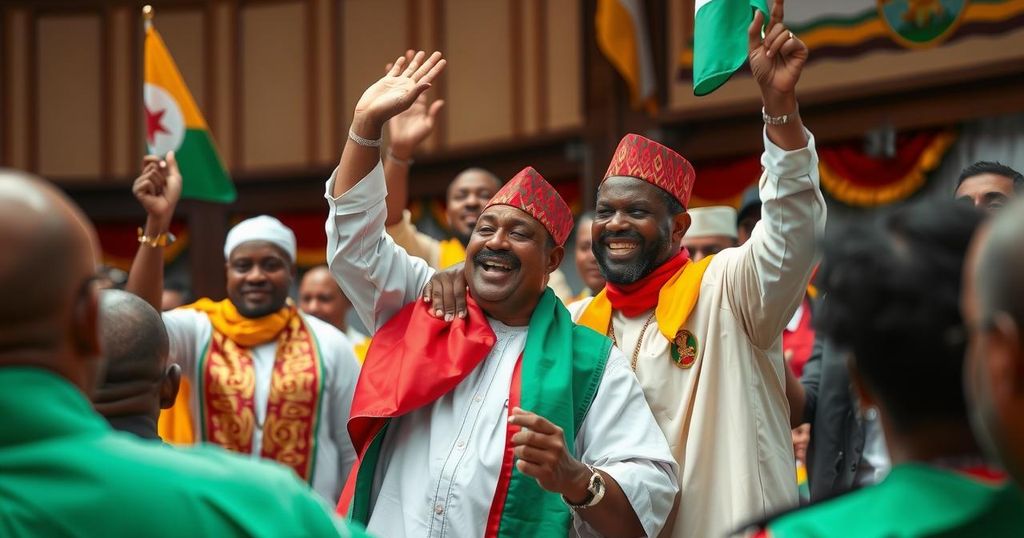Chad’s Ruling Party Secures Majority in Boycotted Parliamentary Elections

Chad’s ruling Patriotic Salvation Movement won 124 out of 188 seats in the parliamentary election boycotted by key opposition parties, with a voter turnout of 51.5%. This marks the first parliamentary election in over a decade and reinforces President Mahamat Idriss Deby’s grip on power amid significant national challenges, including security threats and strained international relations.
Chad’s ruling party, the Patriotic Salvation Movement, has emerged victorious in the recent parliamentary elections by securing 124 out of 188 seats, according to provisional results released by the electoral commission. This election marked Chad’s first parliamentary vote in over ten years, but it was largely boycotted by the principal opposition parties, leading analysts to assert that President Mahamat Idriss Deby has reinforced his hold on power. Voter turnout was reported at 51.5%. The elections are viewed as a crucial step in the nation’s transition to democracy following President Deby’s rise to leadership in 2021 after the death of his father, long-time president Idriss Deby Itno. President Deby had anticipated that the elections would facilitate decentralization, redistributing power to provincial and municipal authorities. However, the boycott by over ten opposition parties cast doubts on the credibility of the electoral process, reflecting ongoing tensions in Chadian politics. The main opposition had previously condemned the election as a “charade,” citing concerns about the legitimacy of the administration following the disputed presidential election last year. This election occurs amidst significant security threats, including attacks from Boko Haram and shifts in the nation’s foreign relations, particularly with France, Chad’s longstanding ally.
Chad has been under military rule since Mahamat Idriss Deby assumed power following the death of his father in 2021. The country’s political landscape has been marred by turmoil and the absence of a credible opposition, which presented challenges for democratic processes. The parliamentary election in question signifies an attempt by the ruling party to solidify its authority while purportedly transitioning towards a more democratic governance framework. The boycott by major opposition parties has raised questions about the electoral legitimacy and the future of democracy in Chad.
In summary, the recent parliamentary elections in Chad underscore the challenges facing the country as it navigates its political transition. The ruling party’s significant victory amidst widespread opposition boycotts suggests a consolidation of President Mahamat Idriss Deby’s power and raises critical concerns about the future of democracy and governance in Chad. As the nation grapples with substantial security issues and political unrest, the effectiveness of recent electoral processes remains in question.
Original Source: www.euronews.com







